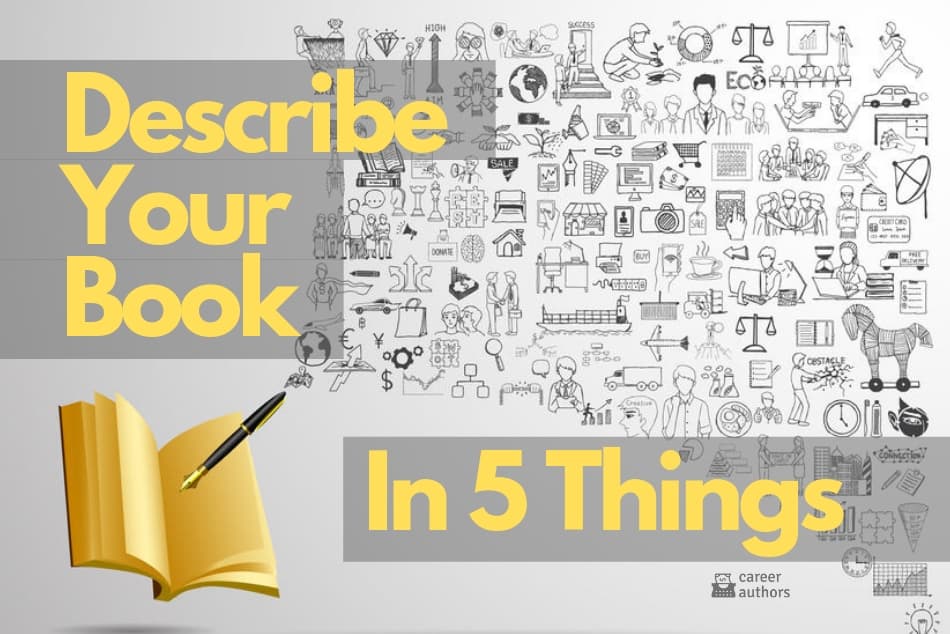It all began for me as a Twitter meme.
Tell us the title of your work in progress, it asked, and then describe it using five things (words or very short phrases—brevity was key).
That seemed easy enough, and even fun, so I hit “retweet with comment,” and got ready to answer.
THE MURDER LIST, I typed.
And then I stopped. Hands poised. Frozen. Five things my new book was about? Well, what were they?
And then I started thinking: what does about mean? Of course a book is about more than the plot, so if I said “murder,” would that be interesting? It’s a thriller, so of course it’s about murder. Doesn’t that go without saying?
Besides, it’s not really about murder anyway, I decided. It’s about justice. It’s about what happens after a murder: who’s affected, and what finally results from it all. But if I said it’s about “justice,” would that be interesting?
If you were to read that a book was about “murder and justice,” that’s utterly generic. It could be anything. Les Miserables, or Othello or Gone Girl or The No. 1 Ladies Detective Agency.
What is it really about?
Okay, I thought, dig down, dive deeper. What is your book really “about?”
What emotion, I thought, is the motivation for the bad things that inevitably happen in this thriller? Tick, tick, tick. I went over my whole book in my head.
And finally: Envy. That was it. The creepy destructive malicious selfish pernicious emotion that makes people lose their judgment and do things that would surprise even them.
Envy. Number one, I wrote. Envy. Got it. Four to go.
Now, though, this silly little Twitter meme began to take on more writerly significance. Because, I began to think, listing the “five things” is about more than generics, and more than plot, but it is sort of an amazingly revealing and understandable overview of a book. And what the book is. Why it’s special and unique.
And, I’ll admit, I wanted people who read my five things to say oh, I can’t wait to read that!
I thought about it. Worked on it. Took it as a challenge. And added my other four. Finally I had:
- Envy
- A necklace
- Snow
- Choosing sides
- Jury psychology
No more “murder,” no more “justice.” And yet from jury, you get “legal “is involved, right? From choosing sides, you get conflict and a necessary decision. From a necklace, you get a clue or plot point or talisman, and that it’s about a woman. From snow, you get not only setting, but, possibly, another clue. And from “psychology,” you get mind games.
I stared at my list, wondering whether I should add “forbidden love,” or “unrequited love,” or even, “lust.” How would that have changed your view of the book? How about “infidelity?”
Forcing myself to narrow my book to five things also narrowed my personal perception of it, and focused me on how best to describe it to readers, personally and in my promotion.
It also let me focus on whether I had sufficiently mined those elements in the manuscript to make them shine and fit seamlessly together.
So much, revealed by so little
Later, when I studied other people’s fives, I continued to be intrigued with the decision-making. With only five things, the genres and sensibilities of their books became incredibly clear.
Here is Shannon Kirk
- Dual psychosis
- Puzzle obsession
- NH woods
- A kidnapping
- Vanished cult
Here is Jessica Strawser
- A gift with unintended consequences
- Half sisters
- Half truths
- Mountains
- A role reversal
Here is Ann Garvin
- A prisoner
- Norwegian Dancers
- Match.com
- Letters
- Big Victorian house
Here is Rhys Bowen
- Ants
- Bed hopping
- Polo
- Charging elephant
- Honeymoon
Can you recognize who does horror? Who does humor? Who does thrillers? Who does women’s fiction?
Instantly, right? From those five things.
We get character, we get setting, we get twists, we get details, we get voice, we get tone, we get genre. The books coalesce in those five words.
Your turn
How about you, Career Authors? Can you list the perfect and tantalizing elements of your novel, numbered one through five? And when you think of them, how does that color the rest of your book? How you think of it, and how you might promote it? How would you describe your book in five things? I know it sounds easy, but trust me, it is not. Try it.
And see what happens.
Let’s talk about it on the Career Authors Facebook page. Now, get writing!





